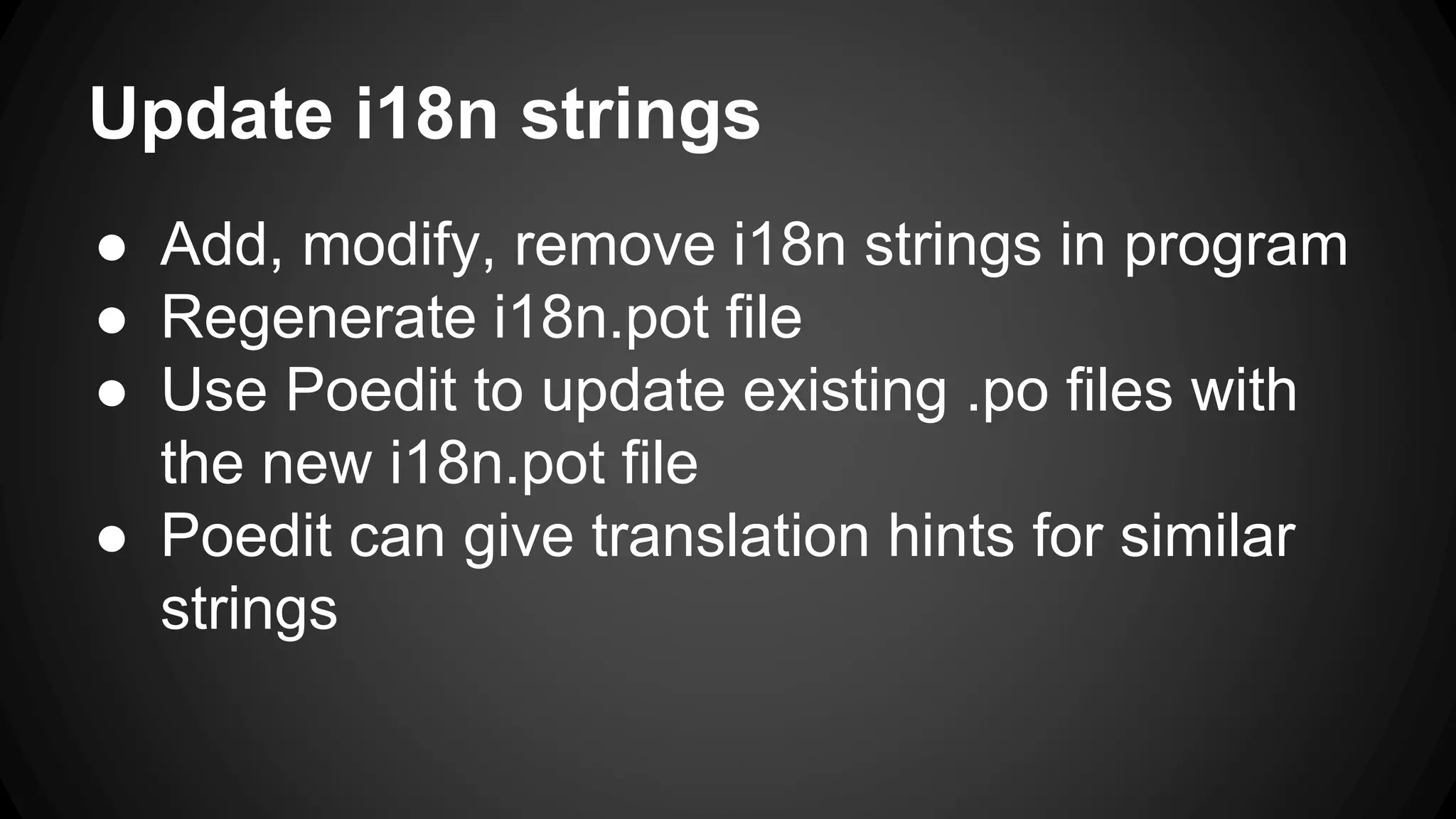This document discusses internationalizing (i18n) Scala programs using the gettext approach. It describes marking strings for translation, extracting them to template files, loading translation files, and translating at runtime. Tools are introduced for extracting strings from Scala code and templates, editing translation files, and parsing loaded files. The approach works for various Scala template engines and frameworks like Play.


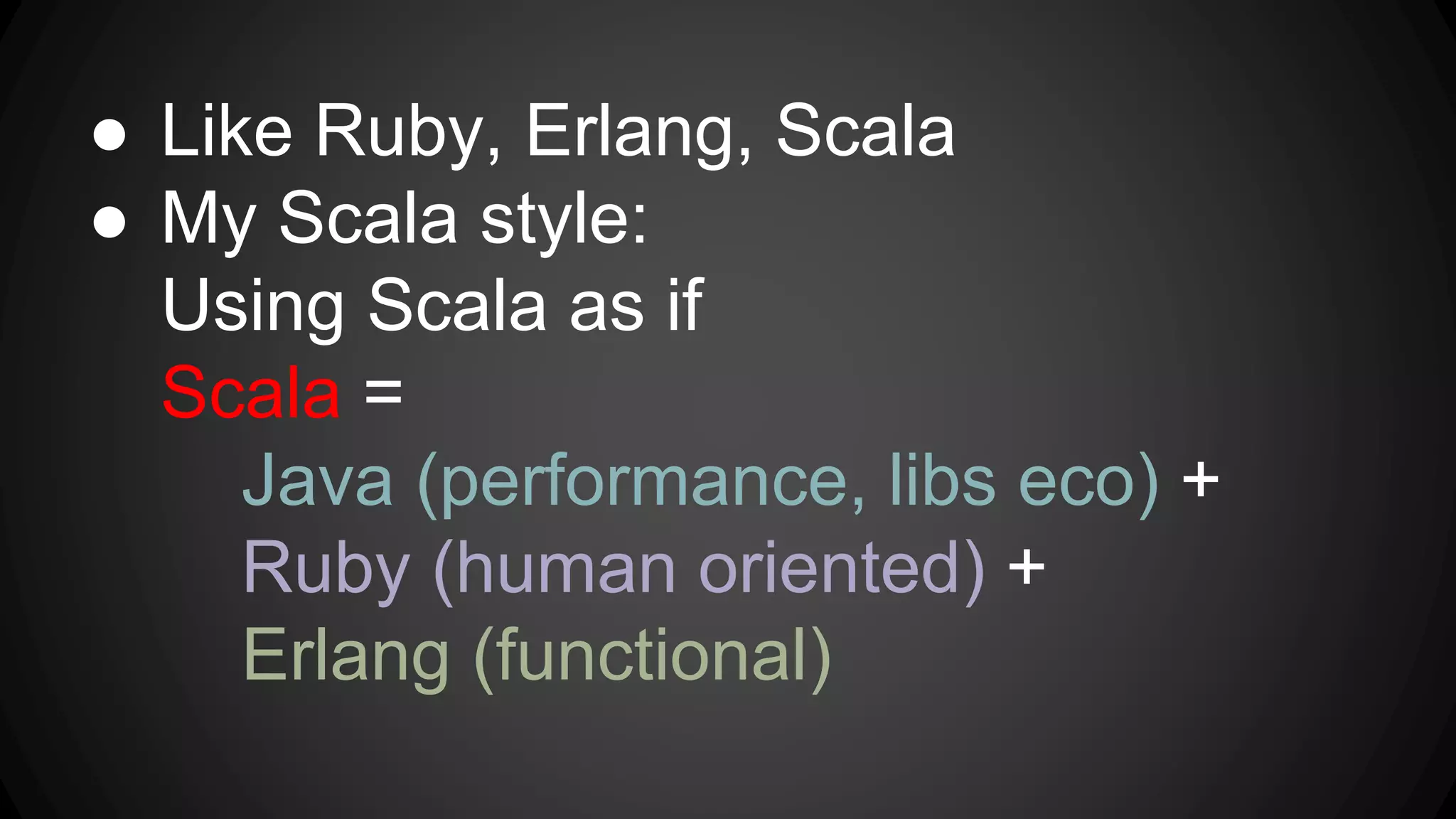

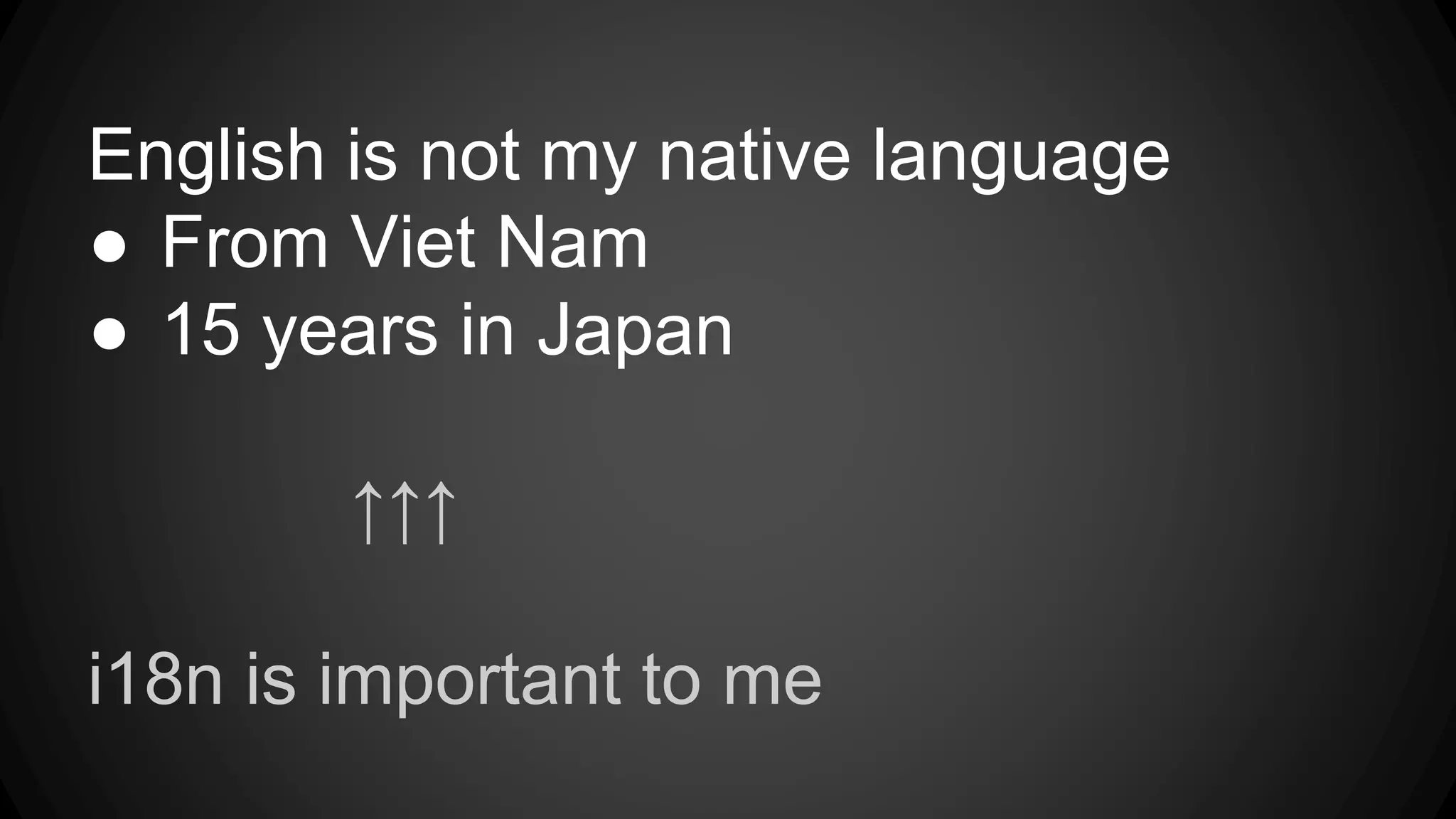
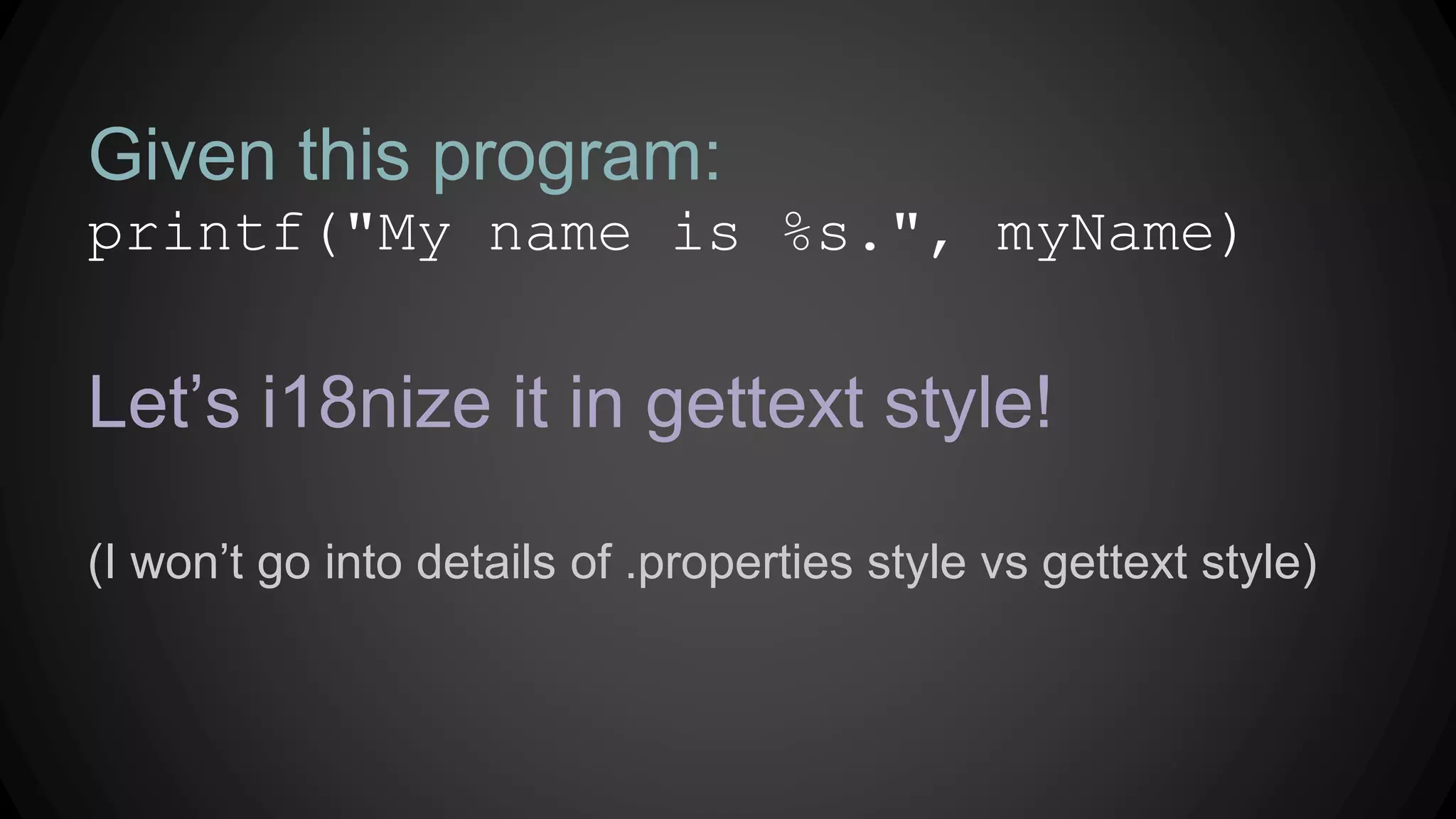

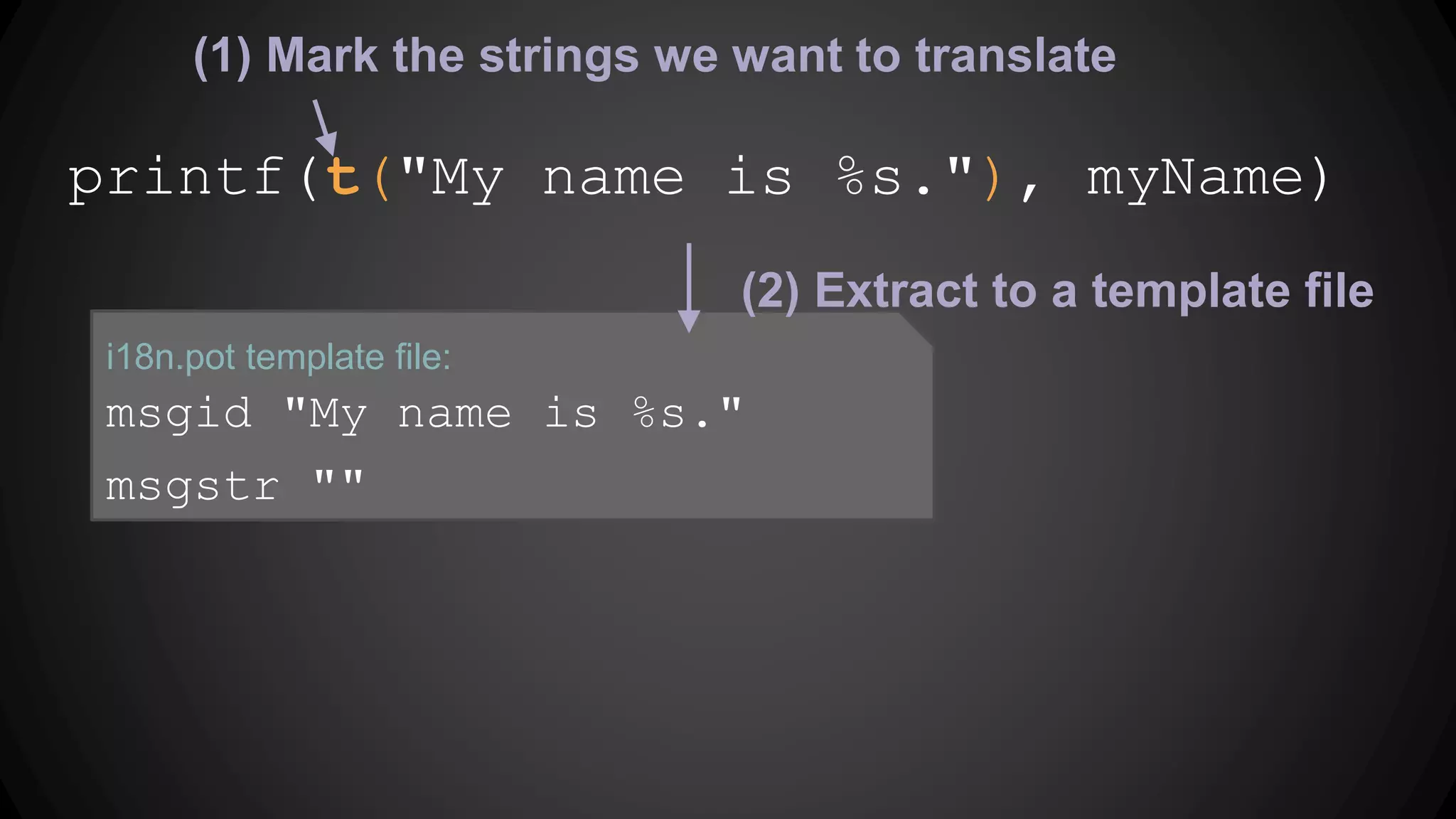
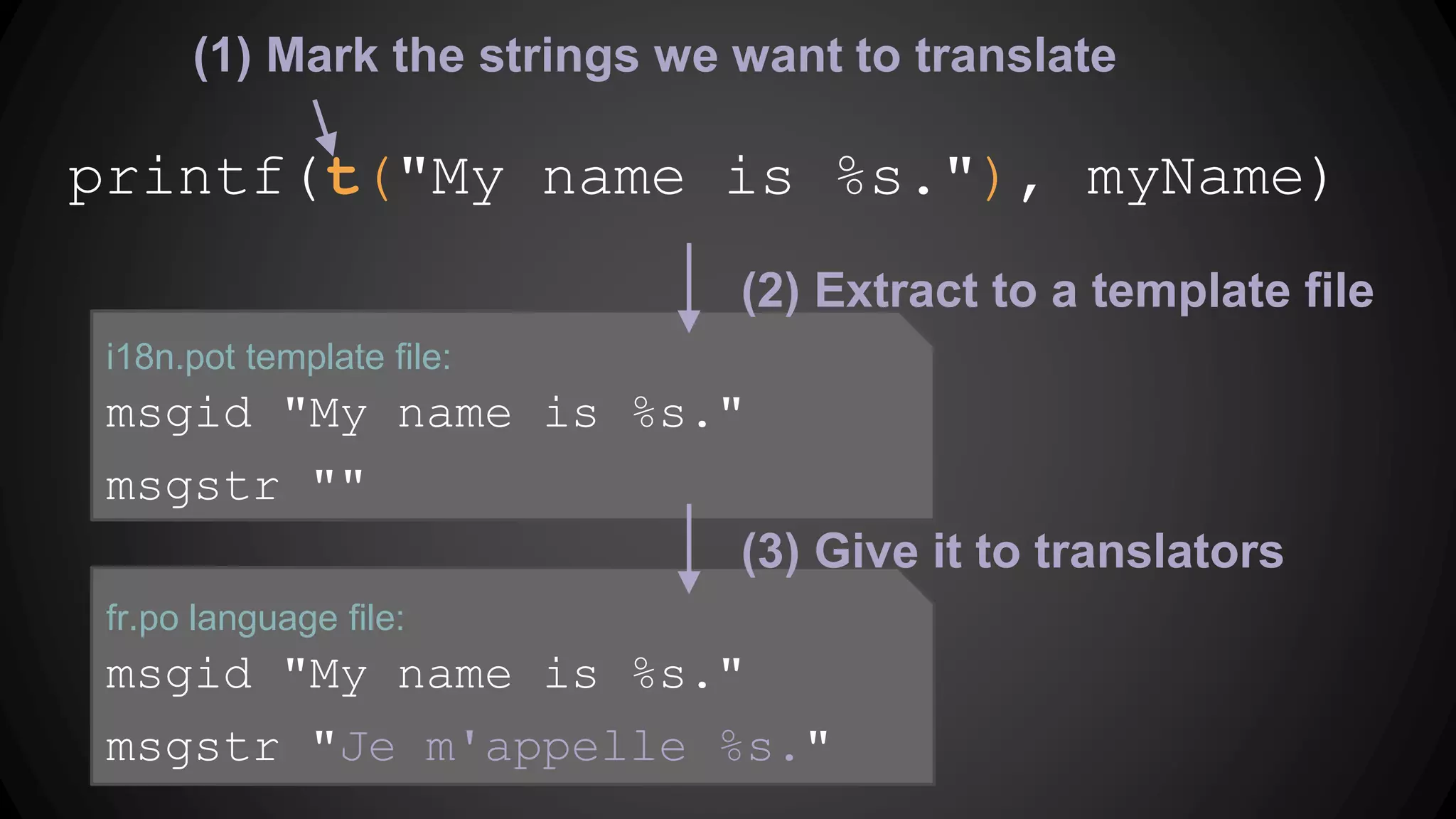
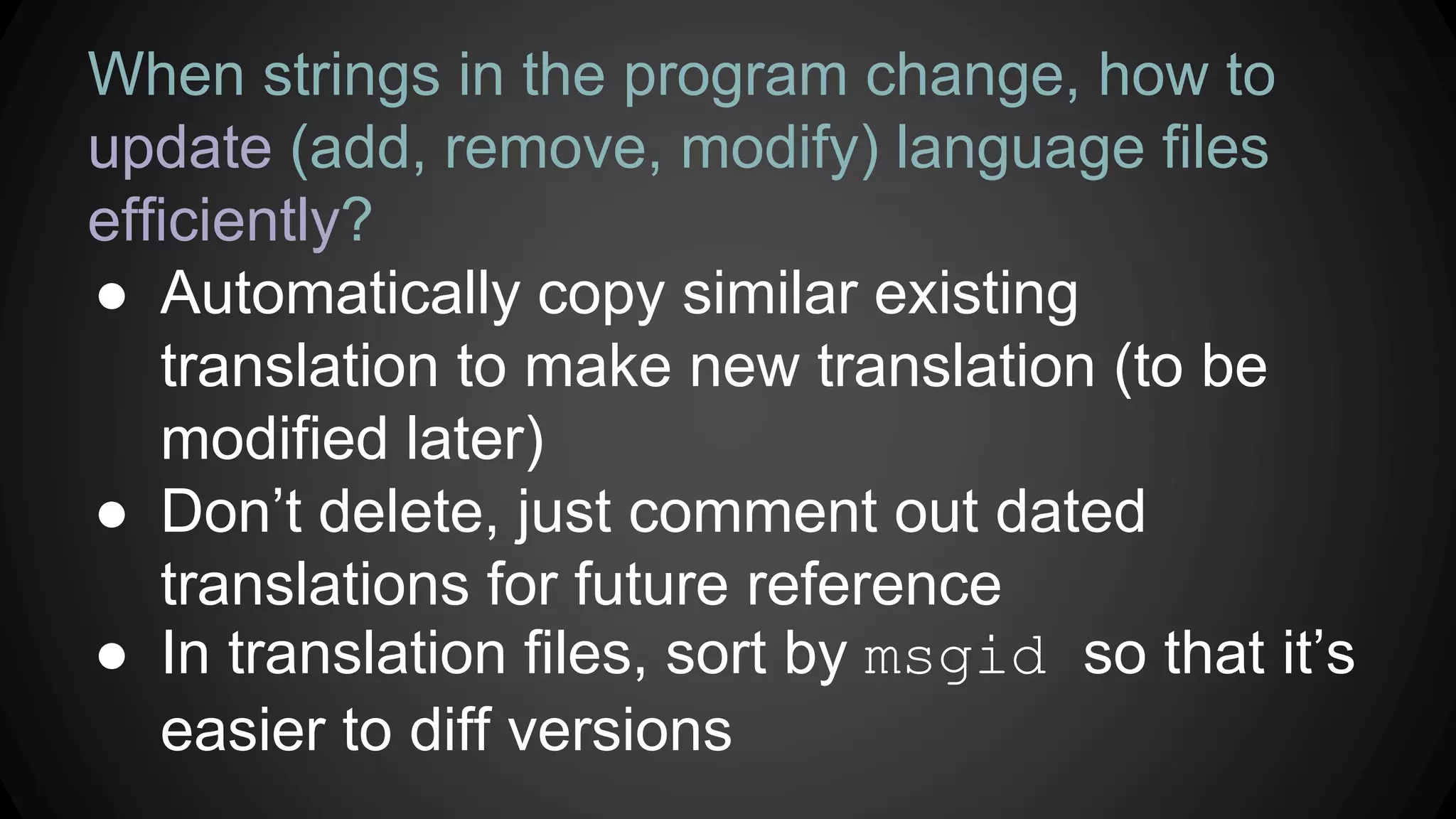
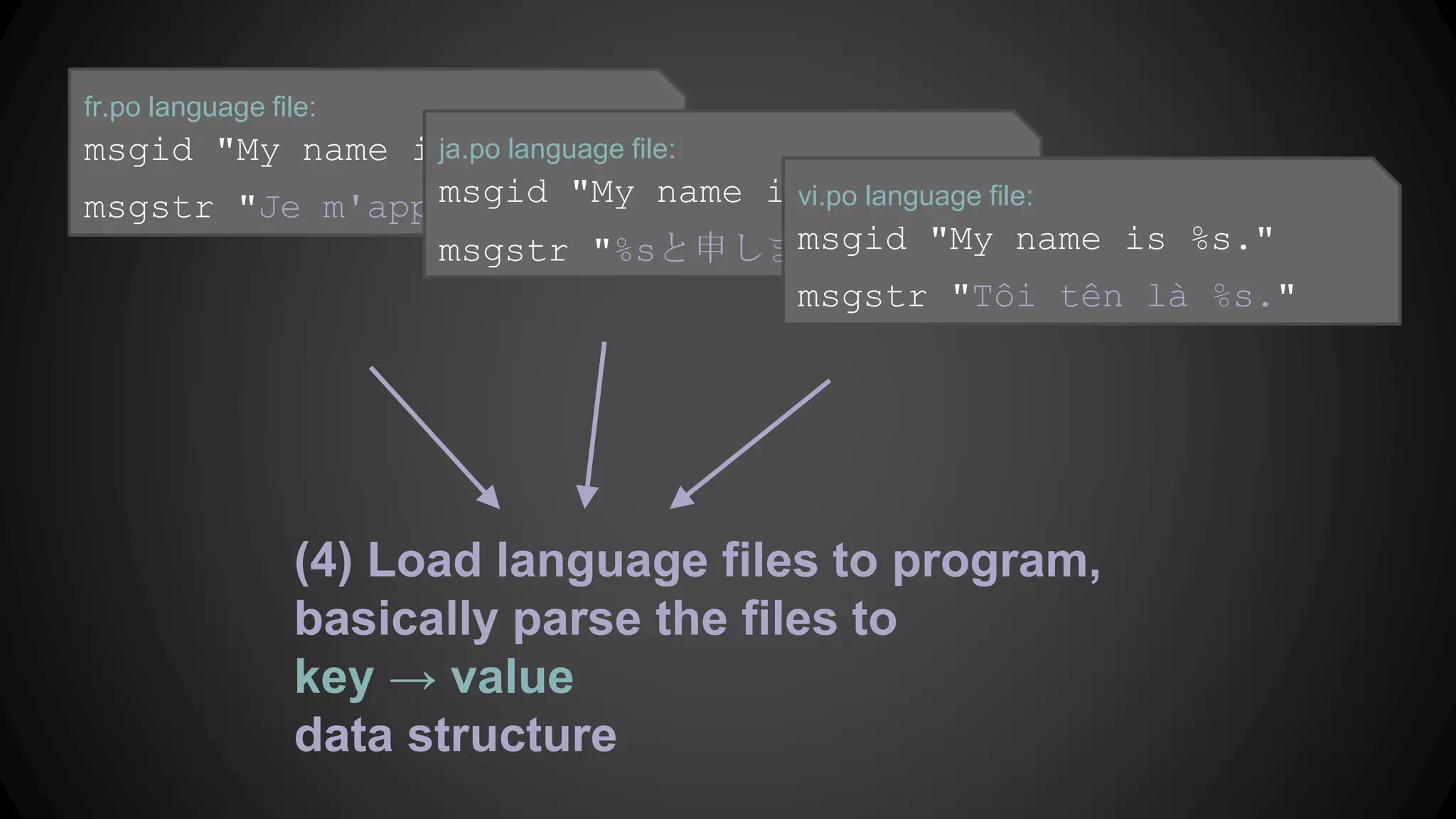
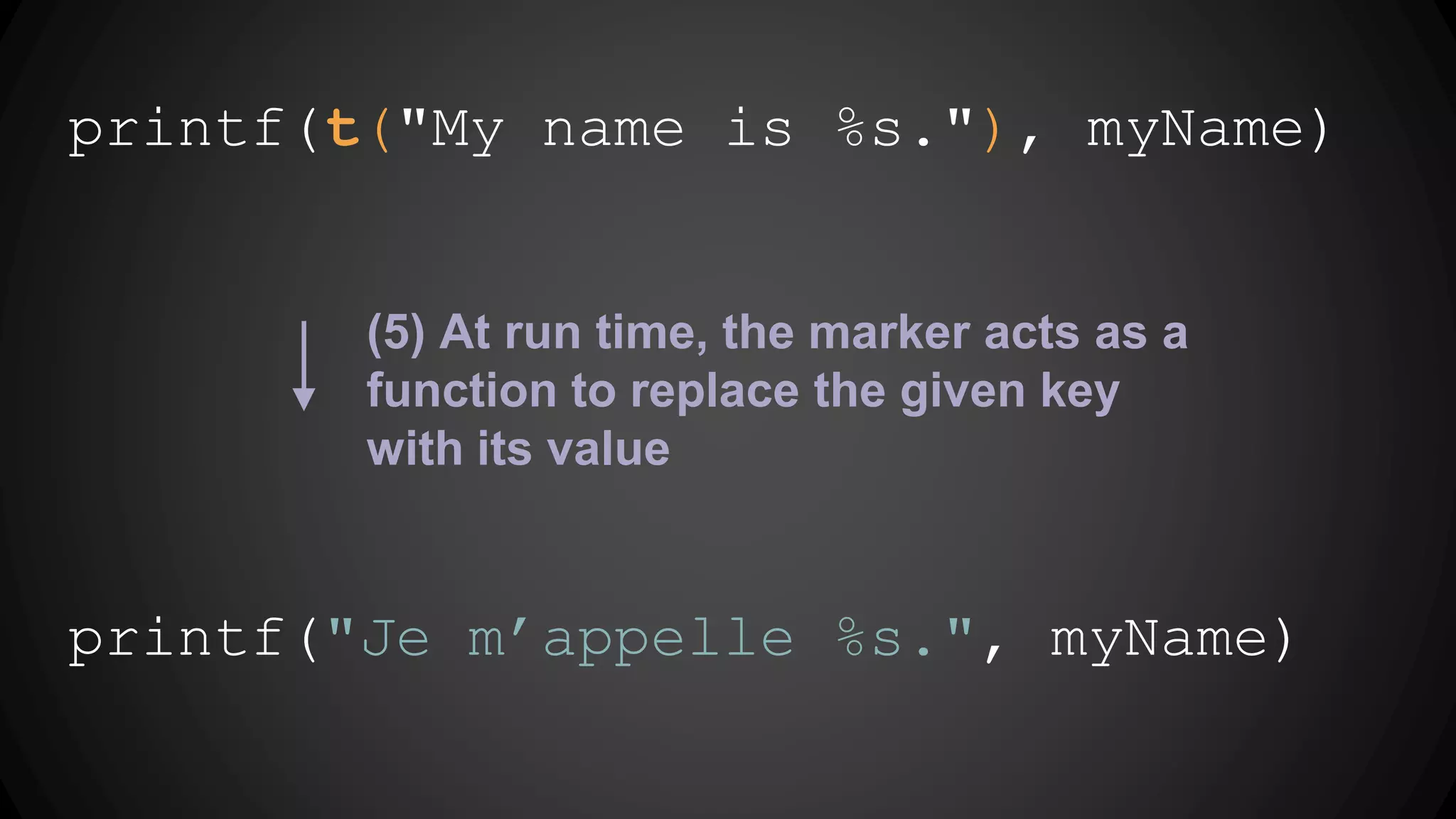
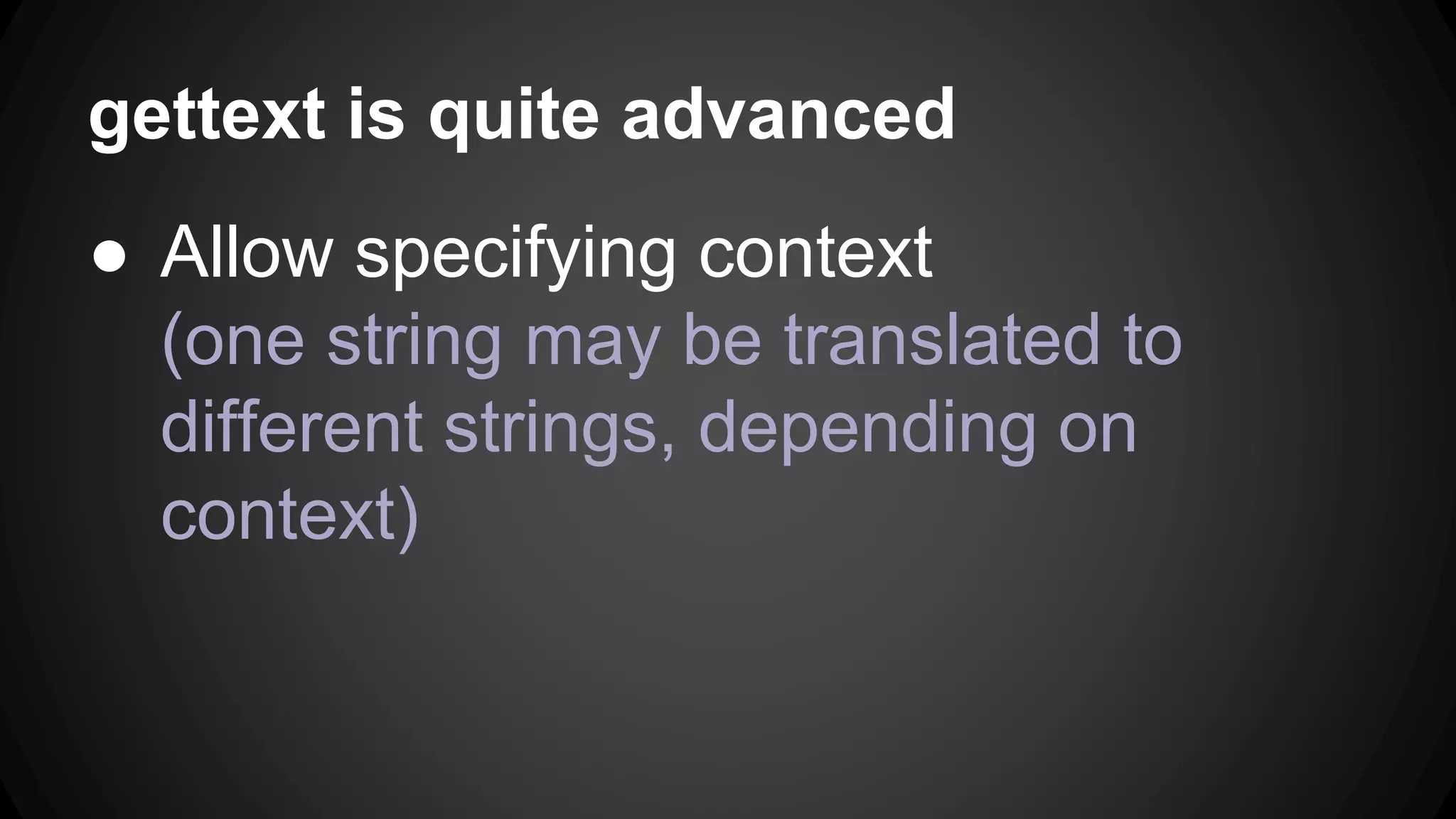
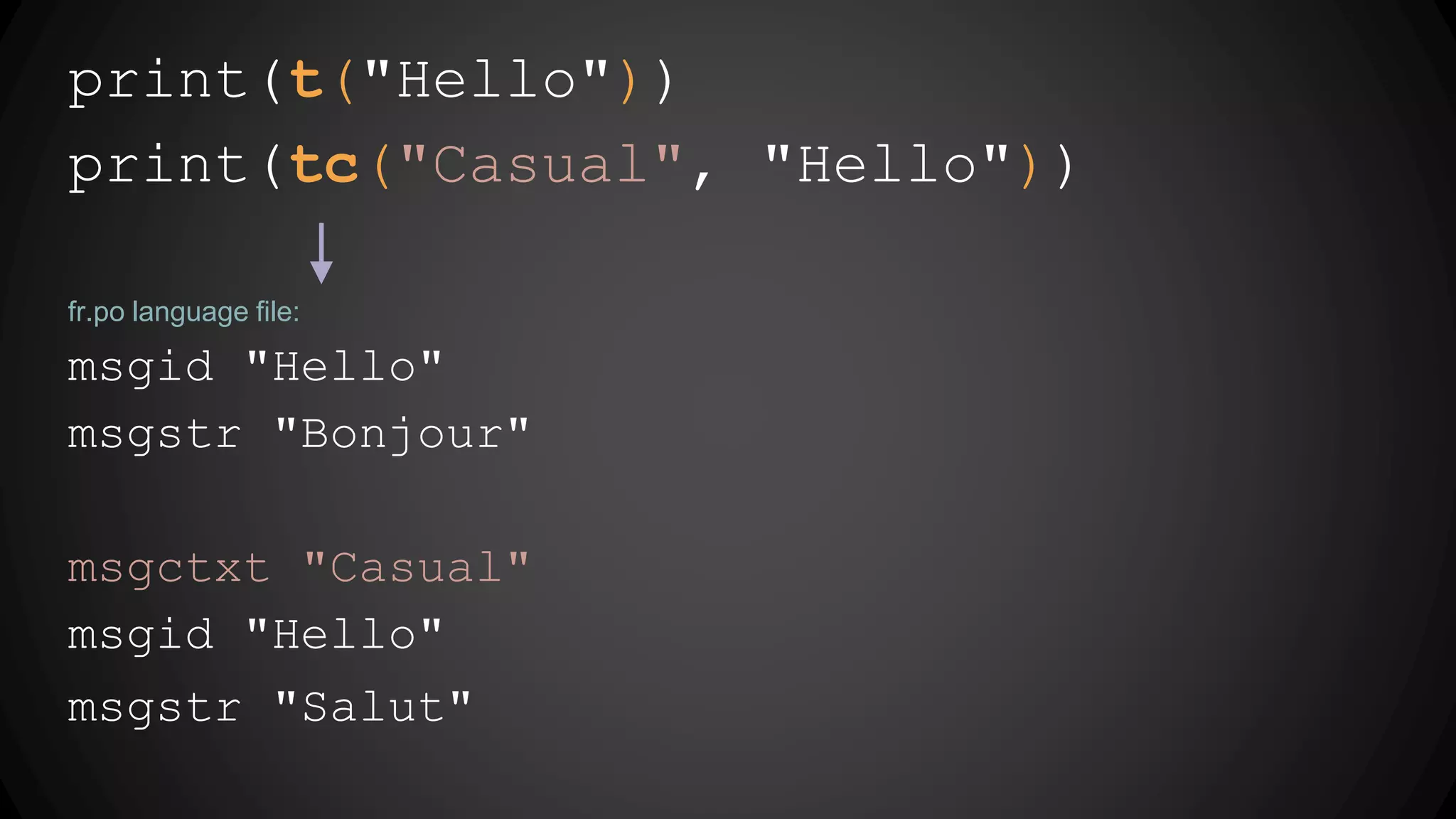


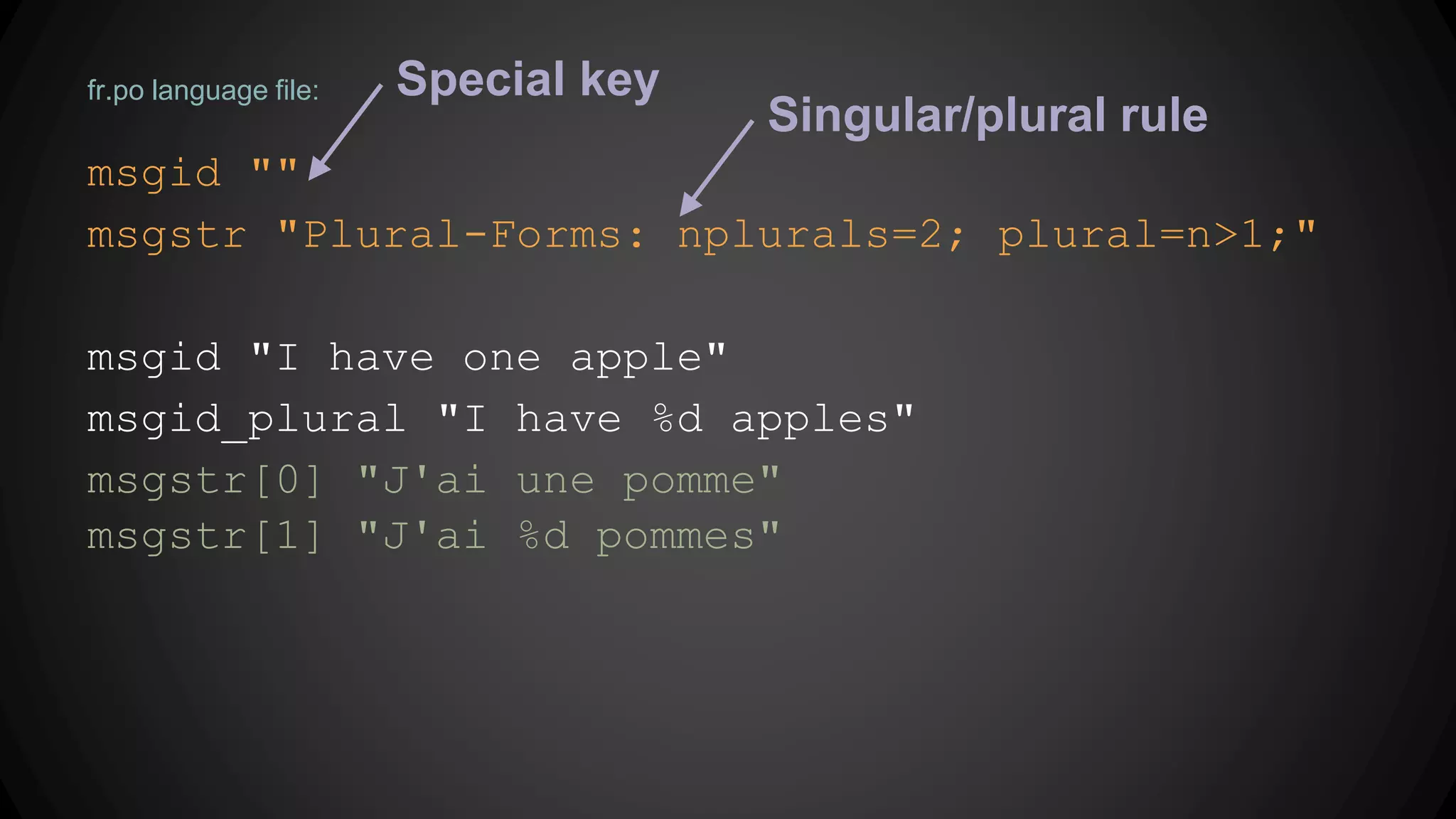

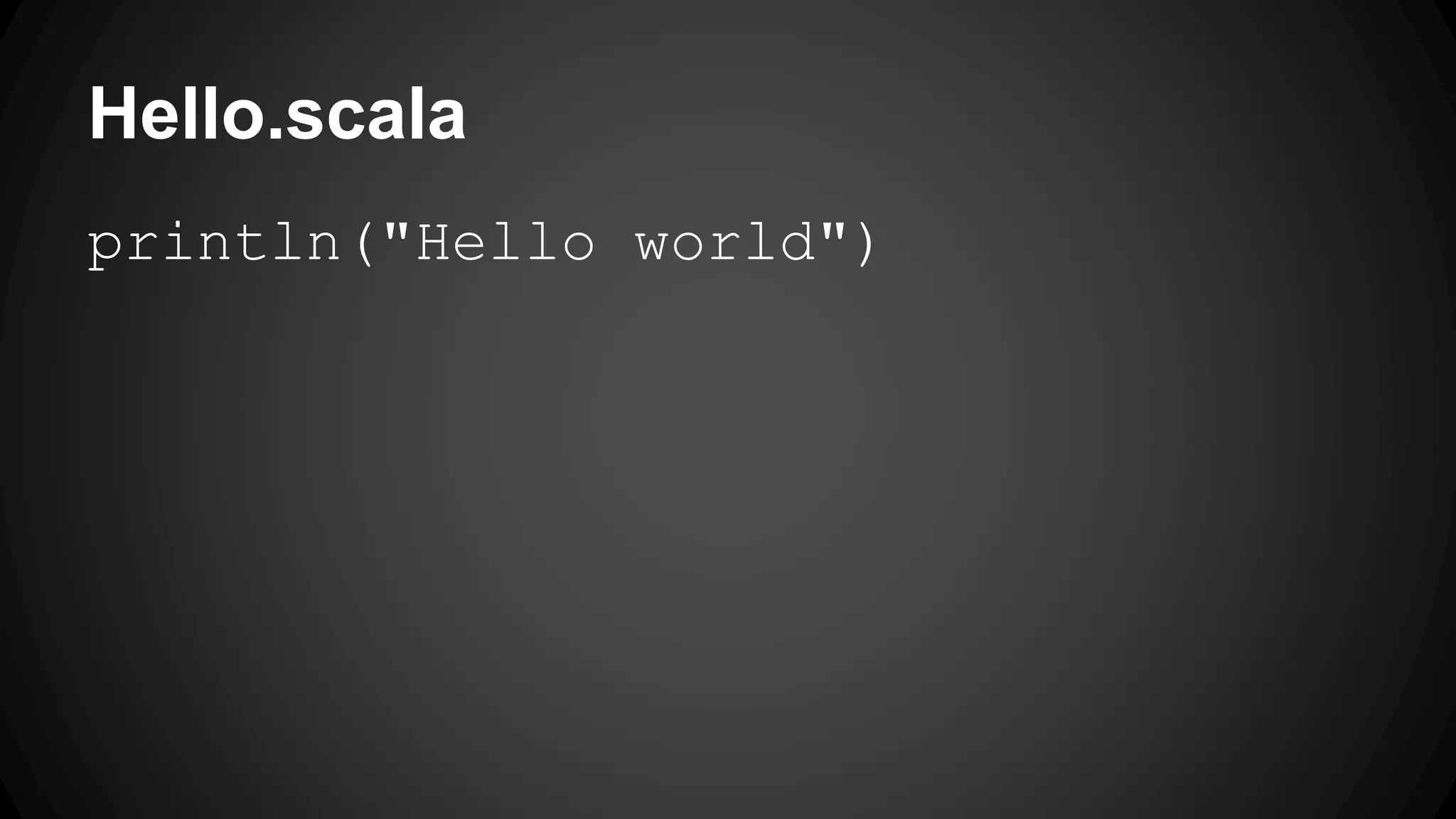
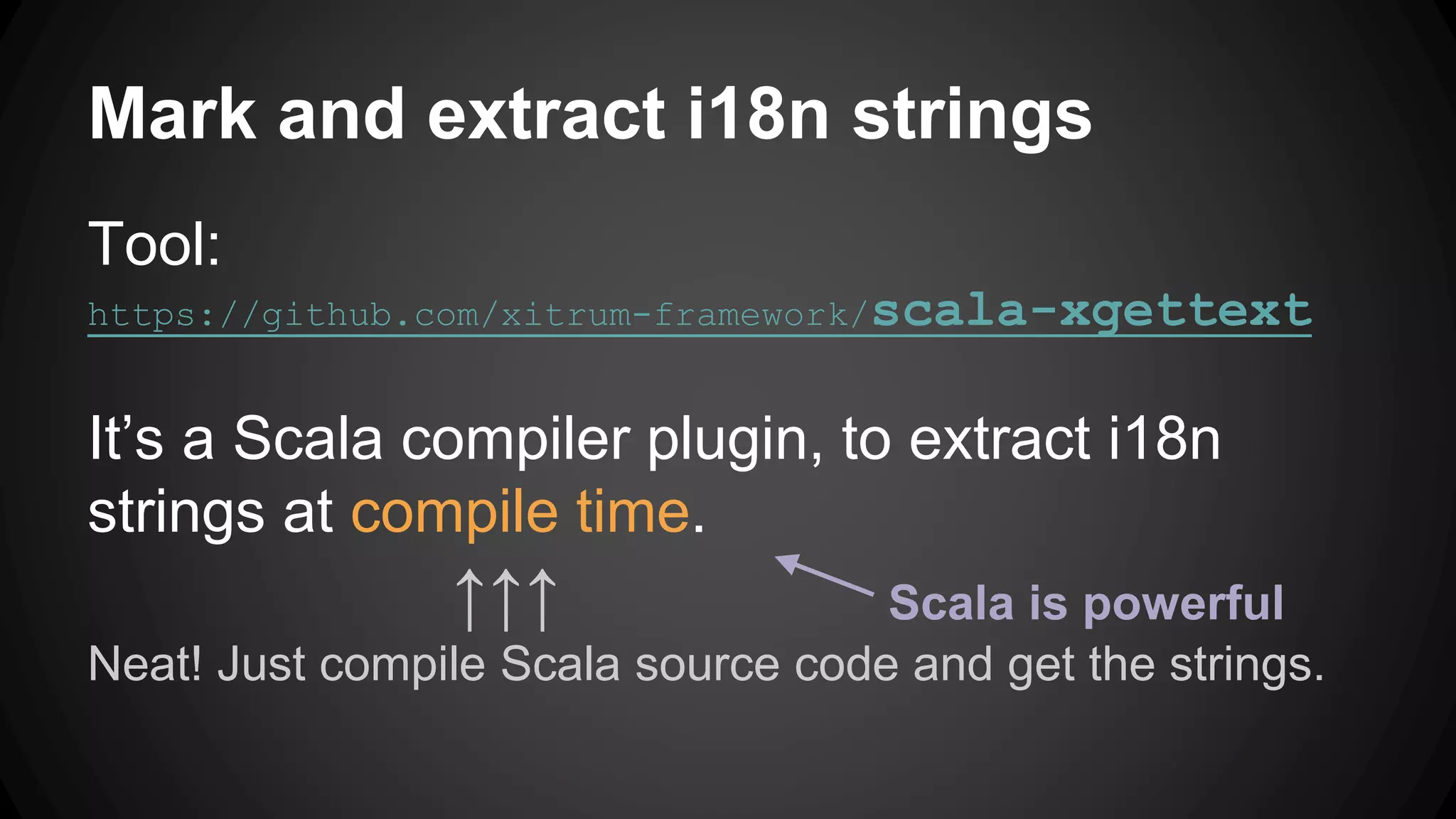
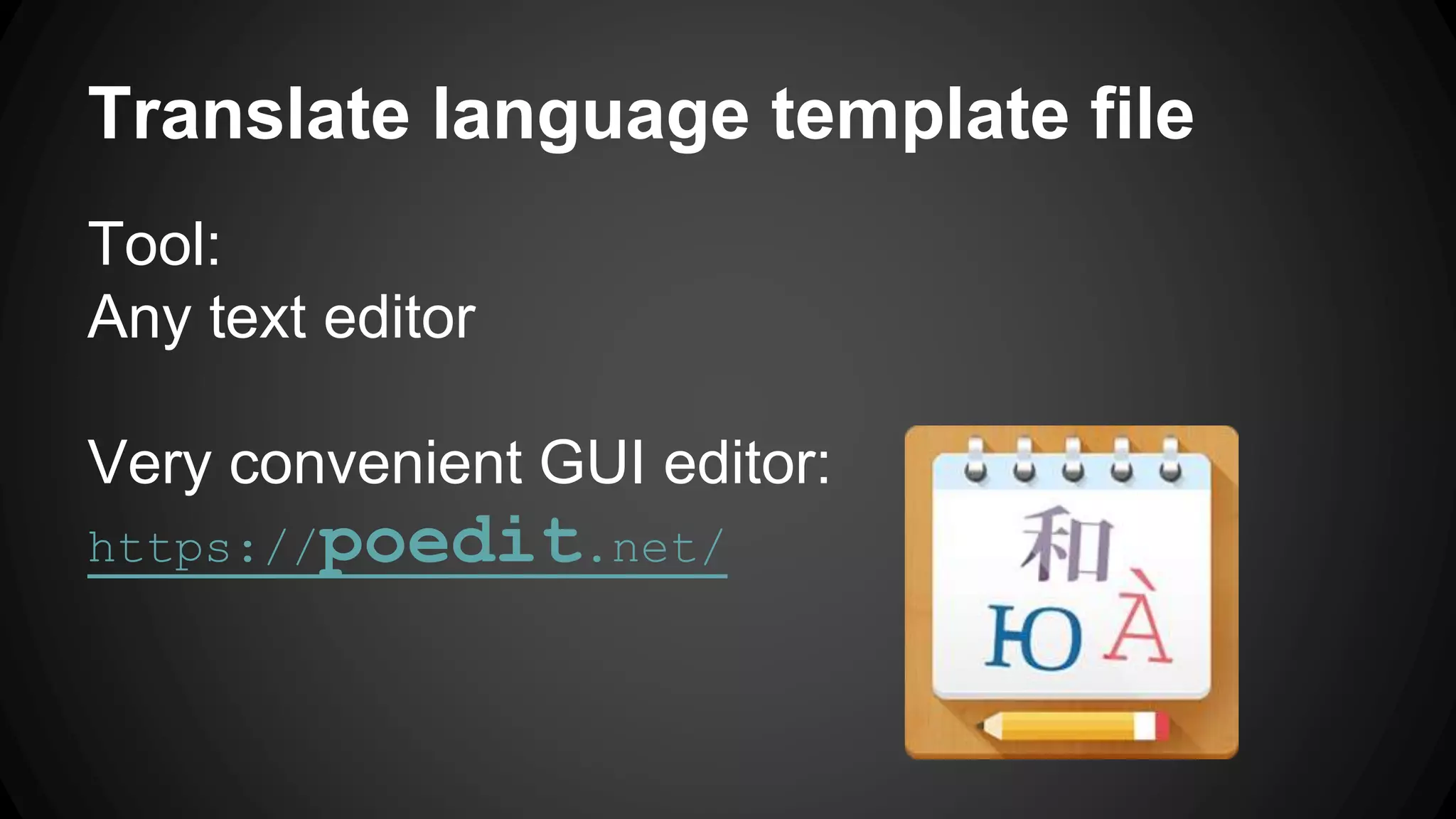
![fr.po language file:
msgid ""
msgstr "Plural-Forms: nplurals=2; plural=n>1;"
msgid "I have one apple"
msgid_plural "I have %d apples"
msgstr[0] "J'ai une pomme"
msgstr[1] "J'ai %d pommes"
Singular/plural rule
Special key](https://image.slidesharecdn.com/i18nalagettext-150811205648-lva1-app6891/75/I18nize-Scala-programs-a-la-gettext-22-2048.jpg)
